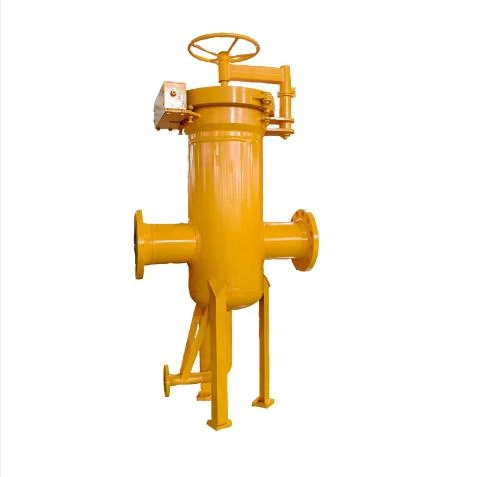
Nov . 14, 2024 00:19
Back to list
natural gas filtration
Natural Gas Filtration Ensuring Clean and Efficient Energy
Natural gas is one of the most important energy sources in the world today, serving as a cleaner alternative to coal and oil. As the demand for energy continues to grow, the importance of effective natural gas filtration becomes increasingly crucial. Filtration systems help to remove impurities and contaminants, ensure operational efficiency, and protect equipment and end-users from potential hazards.
The Importance of Filtration
Natural gas extracted from geological formations contains various impurities, including water vapor, carbon dioxide, hydrogen sulfide, and particulate matter. These contaminants can pose significant risks to both human health and the integrity of equipment. For instance, water can lead to condensation, which may cause corrosion in pipelines and storage facilities. Hydrogen sulfide is a toxic gas, even at low concentrations, and requires careful handling. Therefore, filtration is not just a regulatory requirement; it is essential for ensuring the safe and reliable use of natural gas.
Types of Filtration Systems
There are several types of filtration systems used in the processing of natural gas
. The choice of filtration technology depends on the specific contaminants present, regulatory requirements, and the intended end-use of the gas.1. Coalescing Filters These filters are designed to remove liquid water and oil from gas streams. They operate on the principle of coalescence, where smaller droplets of liquid combine to form larger ones, which can then be easily removed. Coalescing filters are critical in preventing water and hydrocarbon liquids from damaging downstream equipment.
2. Activated Carbon Filters Activated carbon is highly effective at removing volatile organic compounds (VOCs) and specific odors. This type of filter utilizes the adsorption properties of activated carbon, allowing it to capture harmful gases and impurities effectively. These filters are particularly important for ensuring gas quality in residential and commercial applications.
3. Membrane Filters Membrane technology employs selective barriers to separate desired gas components from undesired ones. Membrane filters tend to have a smaller footprint and can be highly efficient in removing contaminants like carbon dioxide and hydrogen sulfide. They are increasingly gaining popularity in natural gas processing due to their efficiency and versatility.
natural gas filtration

4. Cyclonic Separators These systems utilize centrifugal force to separate particulate matter from gas streams. Cyclonic separators are particularly effective for removing larger particles, making them suitable for applications where bulk filtration is necessary.
Challenges in Filtration
While filtration plays a vital role in the natural gas industry, it is not without its challenges. For one, the evolving standards in gas quality necessitate continuous advancements in filtration technologies. Additionally, operators must contend with the varying compositions of natural gas from different sources, which can affect the performance of filtration systems.
Another challenge lies in the maintenance of filtration systems. Regular upkeep is essential to ensure optimal performance. Clogged filters can lead to increased pressure drops, reduced flow rates, and, ultimately, costly downtime for repairs or replacements.
Moreover, the environmental impact of filtration systems itself is an area of concern. The spent filters and contaminants must be handled properly to avoid contributing to pollution. Many companies are now focusing on developing more sustainable filtration options, such as biodegradable materials and systems that can be easily recycled.
The Future of Natural Gas Filtration
As the global energy landscape continues to evolve, so too does the technology surrounding natural gas filtration. Innovations in nanotechnology, advanced materials, and automation are paving the way for more efficient and sustainable filtration solutions. Moreover, increasing awareness of environmental issues is driving the industry towards greener practices.
In conclusion, natural gas filtration plays a critical role in the energy sector by ensuring the clean, safe, and efficient use of this vital resource. With ongoing advancements in technology and growing awareness of environmental sustainability, the future of natural gas filtration looks promising. As countries around the world strive to reduce their carbon footprint, the significance of effective filtration systems will only continue to grow.
Next:
Latest news
-
Safety Valve Spring-Loaded Design Overpressure ProtectionNewsJul.25,2025
-
Precision Voltage Regulator AC5 Accuracy Grade PerformanceNewsJul.25,2025
-
Natural Gas Pressure Regulating Skid Industrial Pipeline ApplicationsNewsJul.25,2025
-
Natural Gas Filter Stainless Steel Mesh Element DesignNewsJul.25,2025
-
Gas Pressure Regulator Valve Direct-Acting Spring-Loaded DesignNewsJul.25,2025
-
Decompression Equipment Multi-Stage Heat Exchange System DesignNewsJul.25,2025

